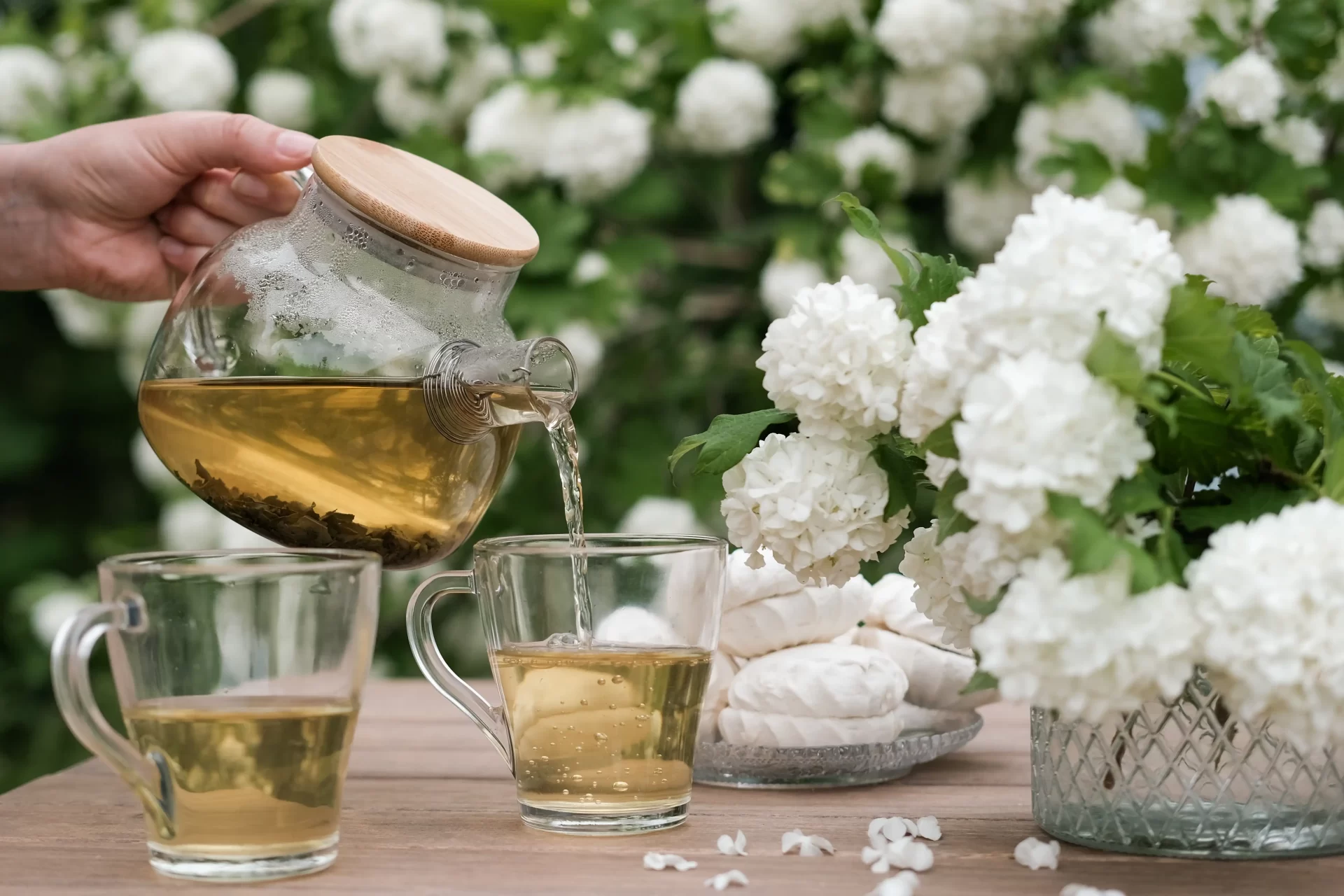Among the wide variety of green teas, white tea is regarded as one of the most delicate and health-promoting options, valued for its subtle flavor, high antioxidant content, and especially its lowest caffeine content compared to other teas. White tea benefits are countless due to its antioxidant properties. With a growing interest in healthy lifestyles, many people are turning to organic white tea and that’s the reason why we are going to have a complete exploration in the world of green tea; specifically for the white tea in this blog. Stay with us to know everything you need about it; from white tea benefits to brewing white tea and more.
What is White Tea?

When the Camellia Sinensis plant’s leaves are young or they are minimally processed, they have a great potential to be considered as the white tea.
Still there is no international agreement for the definition of the white tea; however, different concepts are considered such as a merely dried tea with no additional process or the natural state of the tea plant, or a tea made from young leaves and buds, harvested just before opening and dried under the sun. All these definitions are acceptable but the most significant fact about the white tea is that it is not rolled or oxidized and that’s the reason why it tastes lighter than the green or the traditional tea.
Contrary to its deceptive name, white tea changes color to yellow in the brewing state; and its name mostly stems from the silvery-white color of the hairs on tea plant buds.
If you’re interested in the world of green teas, such as matcha and genmaicha, click on the following links: What Is Genmaicha Tea and Why Is It Called ‘Popcorn Tea’? and Matcha Latte Experience: Taste, Benefits, and How to Enjoy
History
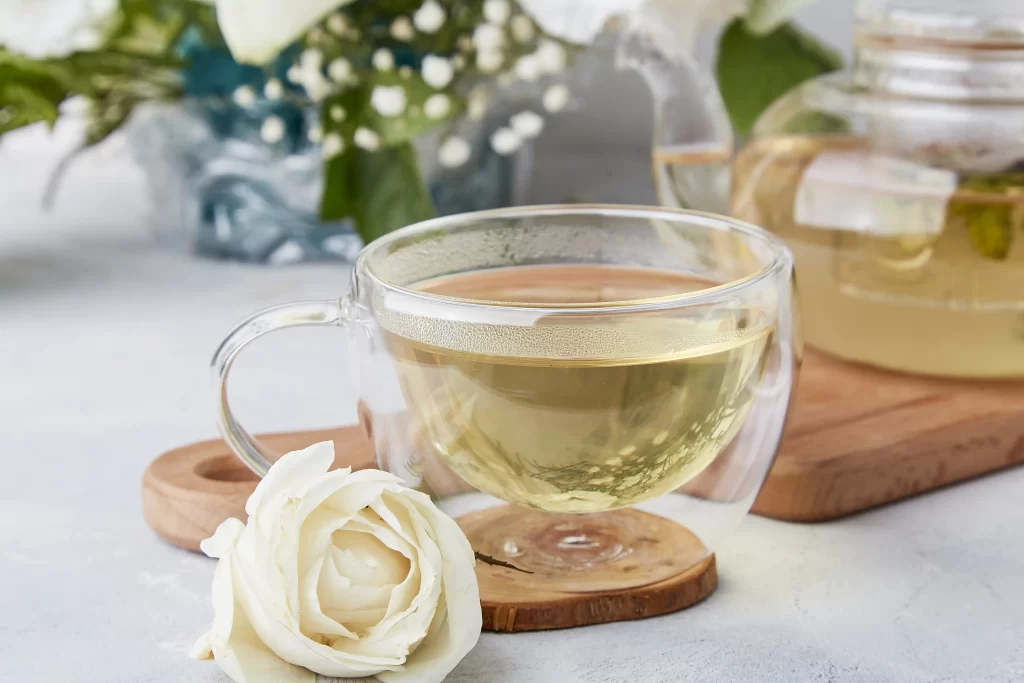
White tea, as we know it today, likely originated within the past two hundred years. However, there is ongoing debate among scholars and tea merchants about the exact time it was first produced in the way it is recognized in China today. The earliest mention of white tea in English was in 1876, where it was mistakenly classified as a black tea. This was due to its production method, which does not involve steaming the leaves like green tea, a process used to deactivate natural oxidative enzymes. White tea is often sold as Silvery Tip Pekoe within the tea leaf grading system, and it is also marketed under simple names such as China White and Fujian White.
White Tea Composition
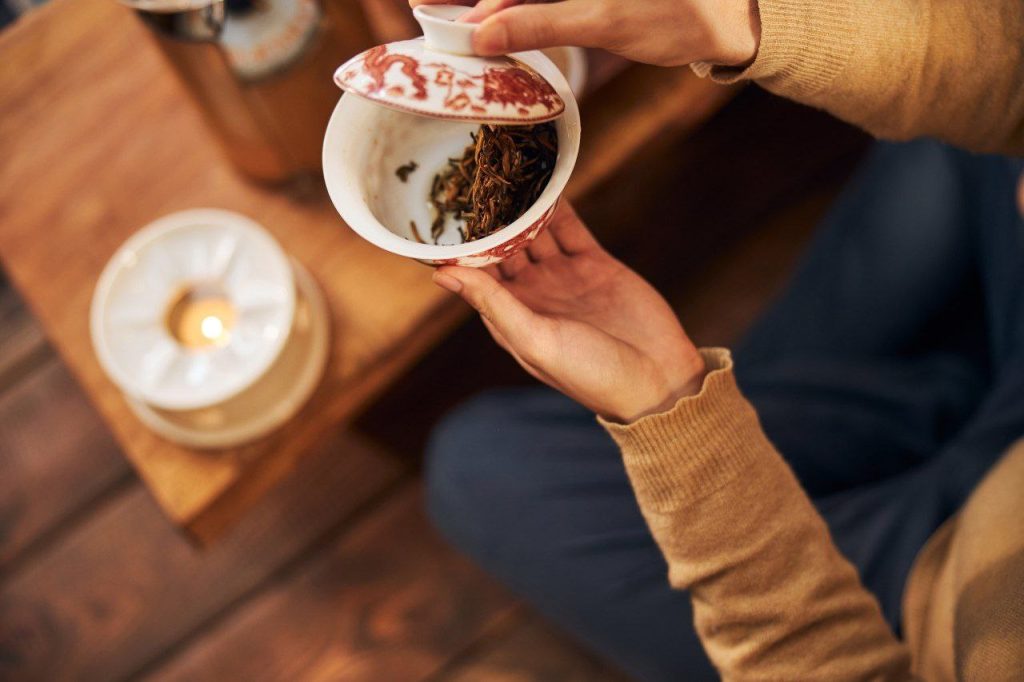
White tea is known for its light flavor and minimal processing, which helps it keep many beneficial compounds. These compounds include polyphenols, amino acids, and minerals that give white tea its health benefits and antioxidant properties. The most important of these are catechins, especially epigallocatechin gallate (EGCG), which is known for its positive effects on health. The quality of white tea can be affected by factors like leaf maturity, storage, and how it’s processed.
A study looked at how brewing temperature affects the key ingredients in three types of white tea: Bai Hao Yin Zhen, Bai Mu Dan, and Shou Mei. The main ingredients tested were catechins, caffeine, theanine, amino acids, and water extracts. The study found that brewing at 100°C was the best for extracting catechins and caffeine. However, temperature had different effects on theanine, amino acids, and water extracts depending on the type of tea. Bai Mu Dan and Shou Mei had more of these important compounds than Bai Hao Yin Zhen.
Since white tea is the least processed tea, it keeps more catechins and amino acids compared to other teas, which is good for its antioxidant benefits. The study also looked at how different qualities of Bai Mu Dan and Shou Mei affect their taste and antioxidant properties. The findings suggest that brewing temperature plays a big role in how much of these important compounds are extracted. The differences in the chemical makeup of the teas may also be linked to factors like when the leaves were harvested, how they were processed, or the shape of the leaves.
White Tea Benefits

White tea is a healthy beverage that can offer a variety of health benefits. Here are some key advantages of including white tea in your diet:
- Rich in Antioxidants: White tea contains powerful antioxidants known as catechins. These help protect the body from free radicals, which can cause damage linked to aging, chronic inflammation, and various diseases.
- May Reduce the Risk of Heart Disease: The polyphenols in white tea help relax blood vessels, improve immunity, and prevent harmful LDL cholesterol from oxidizing, all of which can lower the risk of heart disease.
- Could Aid Weight Loss: White tea contains caffeine and catechins, which may help burn fat and boost metabolism. Studies suggest it could support weight loss by increasing metabolism by 4–5%.
- Protects Teeth from Bacteria: White tea is a great source of fluoride, catechins, and tannins, which help prevent dental cavities by fighting plaque-causing bacteria and strengthening teeth.
- May Help Fight Cancer: Some test-tube studies show that white tea extract could slow the growth and spread of cancer cells, particularly in lung and colon cancers.
- Lowers the Risk of Insulin Resistance: The polyphenols in white tea may help improve insulin sensitivity and lower blood sugar, which can reduce the risk of type 2 diabetes and other related conditions.
- Supports Bone Health: The catechins in white tea may help prevent bone breakdown and promote bone growth, which could lower the risk of osteoporosis.
- Helps Combat Skin Aging: White tea can protect the skin from both internal and external aging, such as damage from free radicals and sun exposure, helping keep the skin youthful.
- May Protect Against Brain Diseases: White tea’s EGCG may help lower the risk of neurodegenerative diseases like Parkinson’s and Alzheimer’s by reducing inflammation and preventing the clumping of harmful proteins.
- Easy to Prepare: White tea is simple to brew. Just steep the leaves in hot water for 5–8 minutes to enjoy its subtle, refreshing taste, either hot or cold.
If you’re eager to explore the world of green teas, I recommend this trusted website where you can purchase a variety of high-quality green tea options: goldenherbs.com
Caffeine Content of Organic White Tea
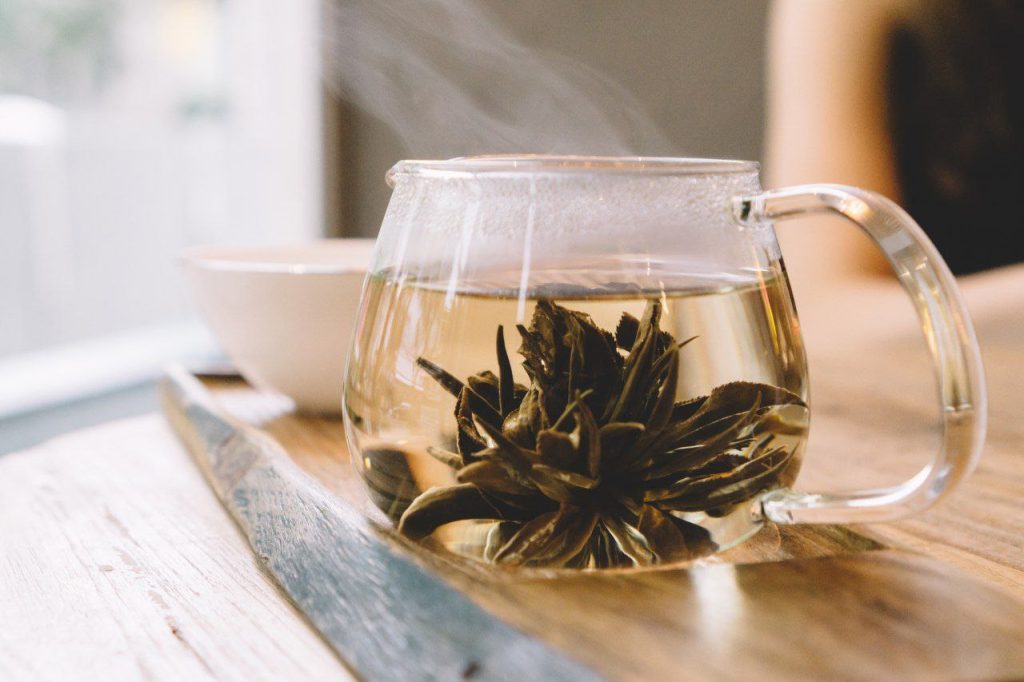
White tea, including organic types, has caffeine but much less than green or black tea. A cup of white tea usually has 6–55 mg of caffeine, compared to 30–70 mg in green tea and 47–90 mg in black tea. This makes white tea, especially organic white tea, a great choice for people who want less caffeine but still enjoy tea’s fresh taste.
Many things can affect how much caffeine is in white tea:
- Type: Some types, like Silver Needle, have less caffeine because they use tea buds instead of leaves.
- Brand: Different brands prepare tea in different ways, which changes caffeine levels.
- Form: Loose-leaf tea often has less caffeine than tea bags.
- Brewing Temperature: Hotter water (above 194°F or 90°C) pulls out more caffeine.
- Steeping Time: The longer you steep the tea (over 7–10 minutes), the more caffeine it will have.
White tea is also better than most other drinks if you want less caffeine:
- White tea: 6–55 mg per cup
- Green tea: 30–70 mg per cup
- Black tea: 47–90 mg per cup
- Coffee: 96 mg per cup
- Energy drink: 164 mg per can (16 oz/473 mL)
- Soda: 34 mg per can (12 oz/354 mL)
Organic white tea is not just light and tasty but also healthier for people who want less caffeine in their drink.
Different Types of Chinese White Tea
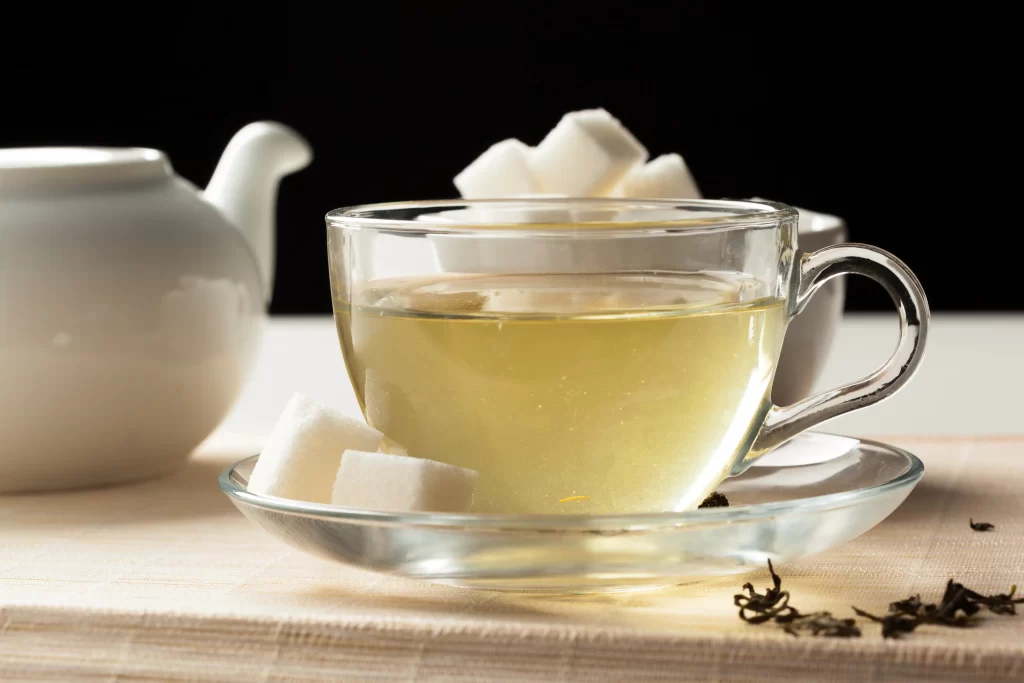
There are four main types of plucking methods for Chinese white teas:
- Baihao Yinzhen: The highest quality, made from only the tea buds.
- Bai Mudan: Composed of one bud and two leaves.
- Gongmei: Similar to Bai Mudan but includes three to four leaves.
- Shoumei: The lowest grade, containing many leaves and few buds.
Popular Types of White Tea
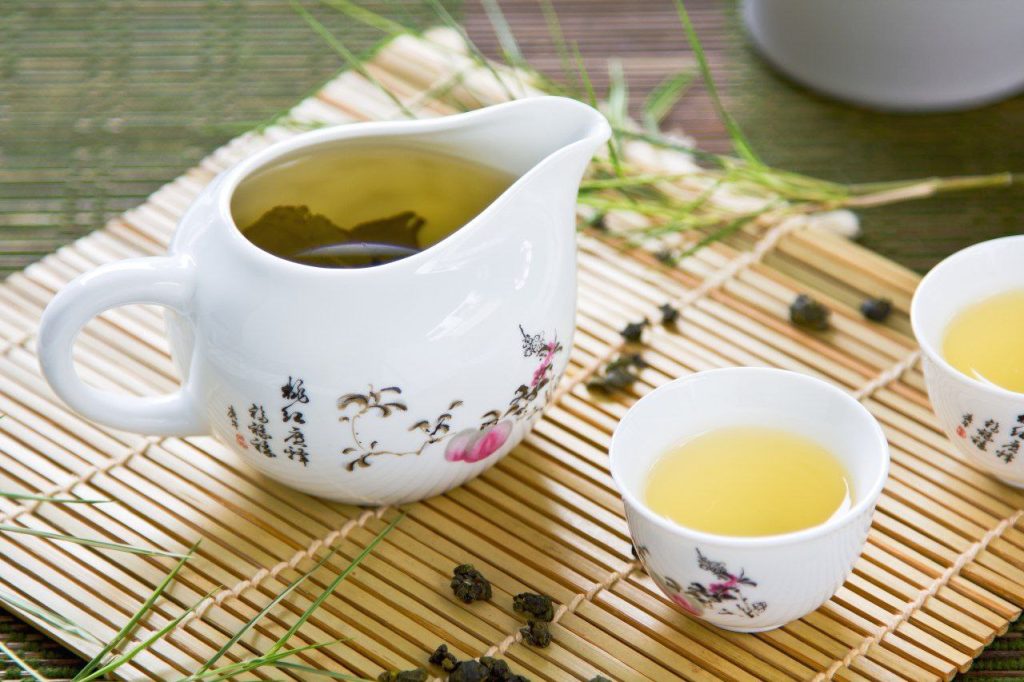
White tea comes in different types, each with its own unique taste and qualities to try.
- Yin Zhen Bai Hao (Silver Needle)
- Bai Mu Dan (White Peony)
- Gongmei (Tribute Eyebrow)
- Shou Mei (Noble, Long Life Eyebrow)
- Fujian New Craft (DaBaiCha or DaHoaCha)
Among these, Silver Needle and White Peony are the best in quality. These teas are picked by hand using strict methods from the Qing Dynasty (1796) and have fresh, smooth, and sweet golden flavors without any bitterness.
Conclusion
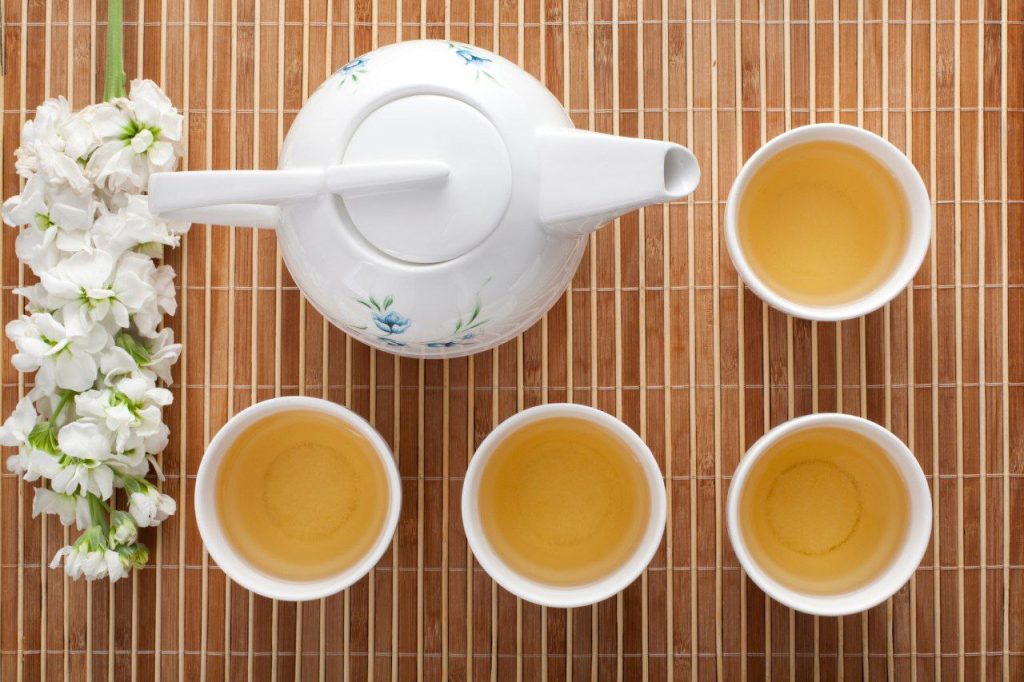
White tea is a gentle and healthy drink that offers many benefits for your body and mind. Its antioxidants can protect your health, and it has less caffeine, making it a great choice for anyone. Whether you’re looking to relax, improve your health, or try something new, white tea is worth exploring. With its light taste and easy brewing, it’s a delightful way to enjoy tea while feeling good about what you’re drinking. So, why not give white tea a try and experience its amazing benefits today?

